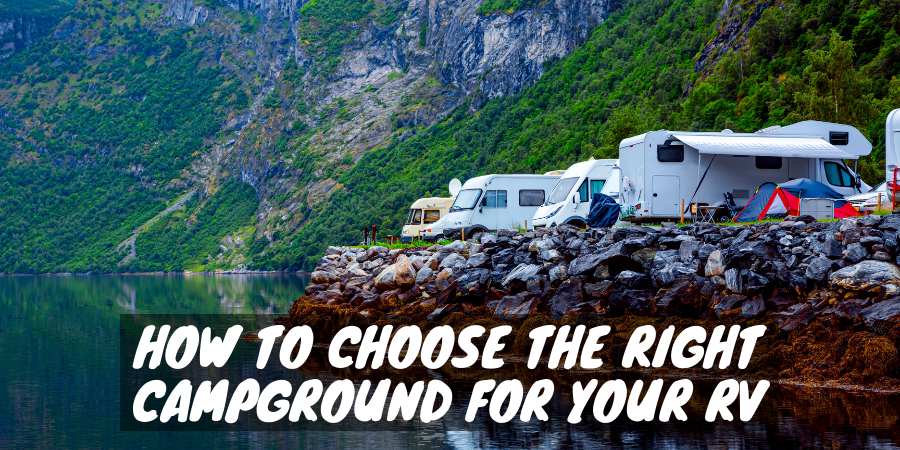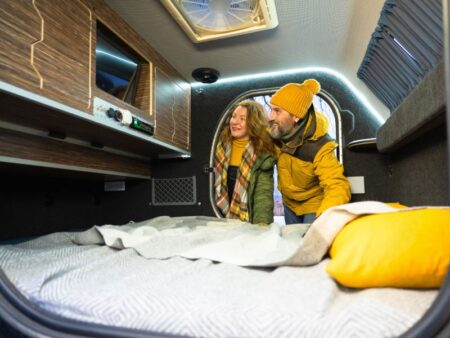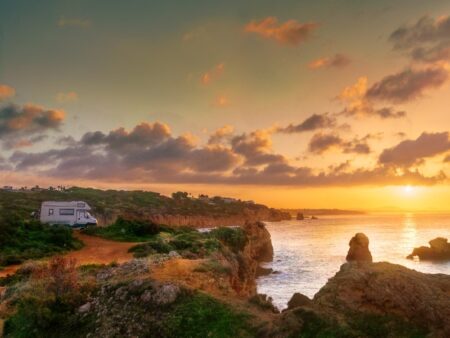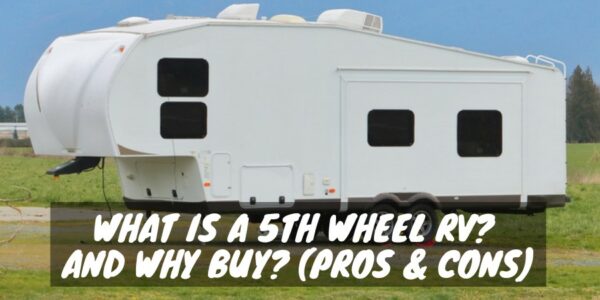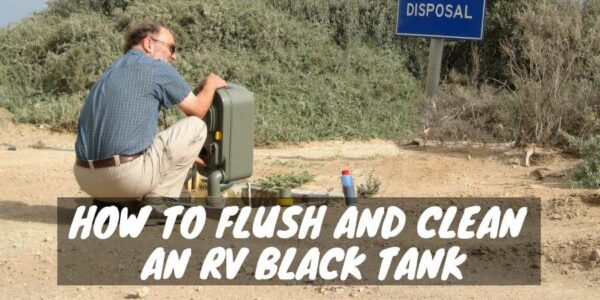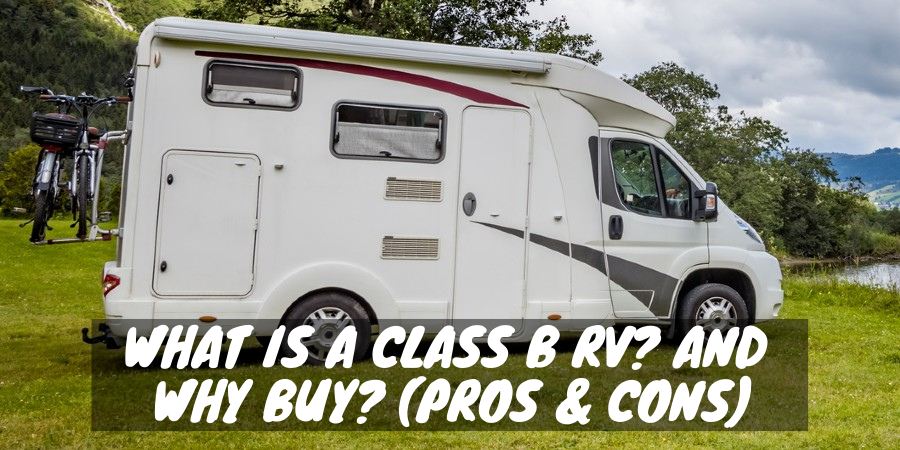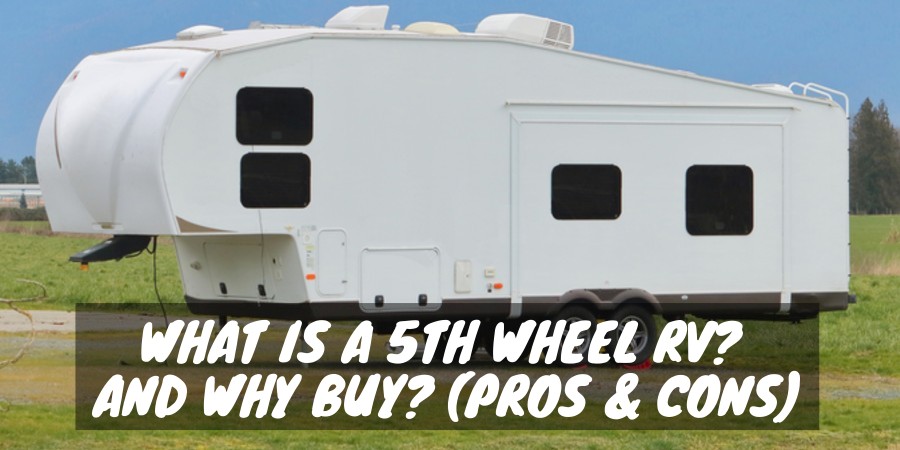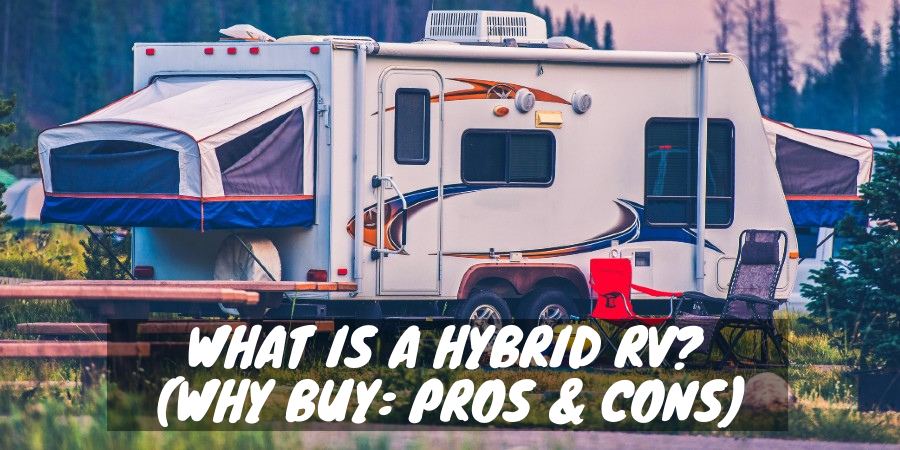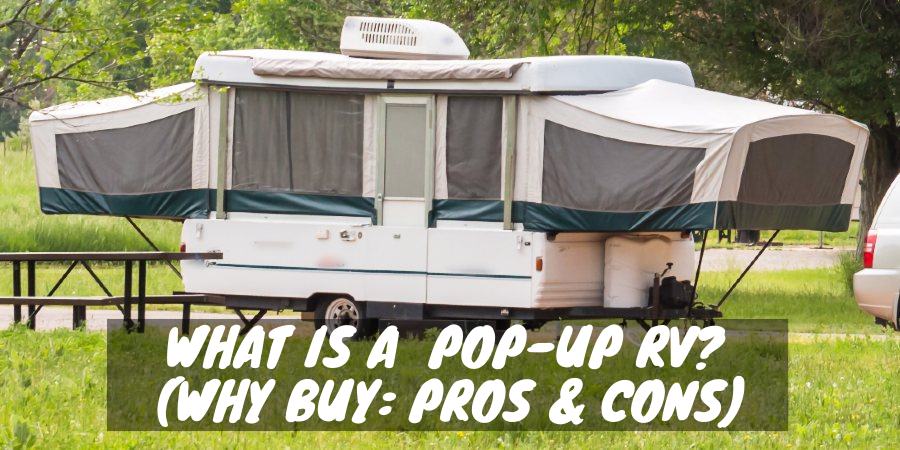RVing is a hot trend right now, so choosing which campground to stay in can be tricky if you aren’t familiar with the RV lifestyle.
When you know how to choose the right campground based on your RV type and camping style, your travels will be more enjoyable.
Nobody wants to spend hours on the road to reach a campground only to find out their camper won’t fit into the campsites available or the campground only allows Class A RVs.
Having a general idea of the best RVs for specific campgrounds can alleviate such issues, so keep reading to find out more!
National and State Park Campgrounds
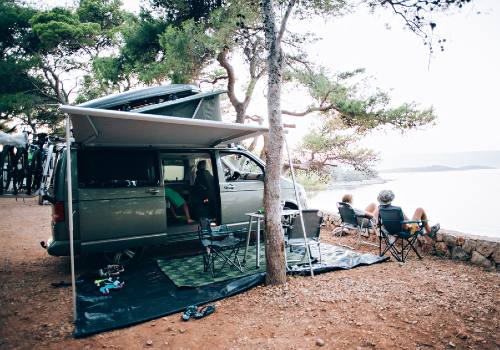
The best RVs for National and State park campgrounds are:
- Any Class B
- Class C motorhomes under 28 feet
- Travel trailers or fifth-wheels 28-feet or under
The reason these RVs are best for this type of campground is the size restrictions on campsites.
Remember, they built most park campgrounds a long time ago, and renovations and updates to accommodate more modern RV sizes are slow to materialize.
The average site will fit campers around 27 feet long, and many of the roads getting to the campground can be narrow and curving, which makes it difficult for larger rigs to travel.
Each park’s campground is unique, so check the website or call ahead if you own a larger RV, as they may have a few sites that will accommodate you.
The great part about state and national park online campground reservation systems is the ability to plug in your RV length, which helps you quickly find available spots that will fit your RV.
If you’re the outdoorsy camping type and appreciate the affordable and diverse options these parks provide, I suggest sticking to the recommended RV types and sizes above.
When you have a smaller camper, you know you won’t encounter issues fitting into any site at any park around the country, even if you make last-minute reservations.
RV Resorts
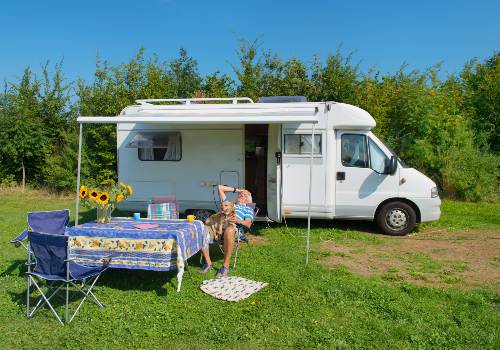
RV resorts are the best campgrounds for most RV types and sizes as long as they look presentable.
Do be aware that some RV resorts place restrictions on skoolies or custom travel trailers that were once box trailers. The plumbing systems on these units may not fit within county regulations for the safe disposal of waste, and some campground’s hands are tied if this is the case.
Call ahead if you own this type of RV to avoid problems upon arrival because if you don’t, you may find yourself out hunting for a different campground when they turn you away.
Campground owners love to toss in the word “resort” to attract customers looking for a pool or nicer bathhouses, and is rarely anything more than a typical RV park or campground.
I worked at an RV park with new owners who upgraded the name from “campground” to “camping resort,” even though they did nothing to upgrade the park amenities.
Most RV resorts offer various site sizing to fit all types of RVs, especially those in the 30-foot and under range.
Expect fewer sites that fit 40-45 foot RVs or fifth-wheels, but overall, these RV campgrounds try to stay current by expanding sites to fit larger recreational vehicles.
Motorcoach Resorts
The best and only RV for motorcoach resorts is a Class A. These RV resorts place the most restrictions on RV type and size.
Obviously, motorcoach resorts only allow motorhomes, but they must be a Class A and not Class B or Class C.
Many motorcoach resorts also have length requirements and won’t accept your Class A RV if it’s under 40 feet long.
This type of RV park is the only one that strictly follows the 10-year-rule on RV age as well.
Most of these resorts allow guests to purchase their lot and then rent out the site to short-term vacationing travelers when not being used by the owner.
While there may be a few standard RV campgrounds with the words motorcoach resort in their name, most are for high-end clientele who expect a certain level of luxury and amenities while “camping.”
Restricting the size and type of RV allows these RV resorts to create ideal campsites (or “slips” for the fancy crowd) that perfectly fit larger rigs. Roads are wider to accommodate the turning needs of long RVs easily.
Pull-through sites aren’t as common as you would think for such an exclusive RV park, but this is mainly due to having campsites back up to water features, so you have a nice view.
Spacing and landscaping are top-notch and allow for more privacy between sites, while hookups are discreetly hidden from sight.
Most motorcoach resorts have small, climate-controlled casitas on each site for private relaxation, a central clubhouse, and swimming pools, and are often near a golf course.
If you’re a Class A owner and not looking for such luxury or high rates, bypass any motorcoach resort when making reservations during your camping trip.
Older RV Campgrounds Built Pre-1980
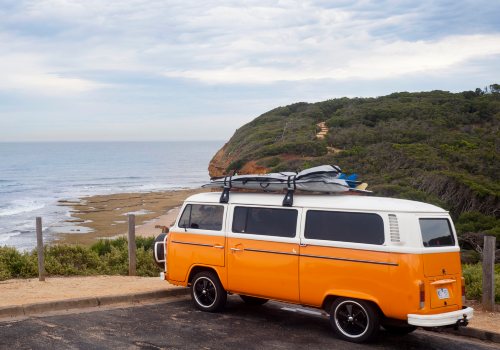
The best RVs for older campgrounds are pop-ups, travel trailers, fifth-wheels, and motorhomes under 30 feet. Campers in the 20-25 foot range with low clearance are even better.
Remember that older campgrounds were to fit the RVs of that time, which were much smaller than today. Pop-ups and 12 to 16-foot trailers were very common, so sites tended to be shorter.
Expect trees and shrubbery to be full-grown, causing issues with branches hitting tall fifth-wheels or Class-A motorhomes.
Roads and site spacing can be very tight in older campgrounds, making it challenging to maneuver your RV into your space when your RV is larger.
Again, not all older campgrounds have such issues, but as a general rule, most will offer smaller campsites and attempt to squeeze in a few expanded sites to fit larger RVs so they can attract more customers.
BLM Land or Off-Grid
The best RVs for dispersed camping on BLM land or general off-grid boondocking are truck campers and rugged travel trailers under 20 feet in length.
Roads to these campsites are often unpaved and can have deep ruts or holes that can cause issues with other types of RVs.
Actual campgrounds within BLM land often restrict RV length to under 30-feet, but all are different, so check directly to ensure they offer spaces to fit your camper length.
Truck campers are ideal as they are small and easier to fit and level just about anywhere. A heavy-duty truck has the large tires and high clearance necessary to reach out-of-the-way campsites without worry.
The same premise goes for small travel trailers specific for off-grid adventurers, as they, too, are pulled by trucks or beefy SUVs.
These camping trailers feature rugged tires, reinforced chassis and framing, higher clearance, and often come with solar panels and larger fresh-water tanks to handle the needs of boondock camping.
I have seen all types of RVs camping off-grid that don’t fit into these categories. Just be aware that if your 35-foot Class A gets stuck in the mud, it won’t be easy or cheap to get it out.
Destination Campgrounds
Want to Connect With a Community of Over 1,078 RV Enthusiasts?
Destination campgrounds cater to long-term or seasonal campers who bring their RV to the site and either camp continually or leave it there between visits.
The best RVs for destination campgrounds are spacious fifth-wheels, travel trailers, motorhomes, or park models in the 30-foot and above category.
Whenever you plan to camp for extended periods, having the comforts of home and plenty of space to spread out is the way to go. Families can enjoy a separate bunkhouse for the kids and large kitchens.
Destination campgrounds are excellent for large RVs because you only have to park and set them up once. Any of the stress associated with “normal” camping excursions is minimal when you aren’t packing up and resetting camp every week.
Often, destination campgrounds allow you to pay storage fees and leave your camper there during the off-season, which saves even more hassle making arrangements yourself or having it in the way when storing it on your property.
Beachfront or Coastal Campgrounds
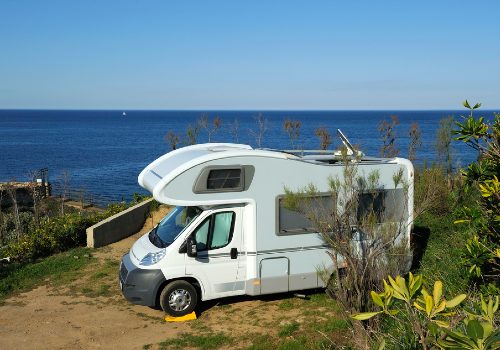
The best RVs for campground sites that directly border the ocean or waterways are 25-foot or under travel trailers and teardrops.
Most coastal campgrounds offer regular sites for all types of RVs a bit inland from the water, but a travel trailer is best if you want direct water views.
County or state regulations typically forbid RV sewer connections along waterways, so expect to pull out your RV during a lengthy stay to a dump station placed elsewhere in the campground.
Expect to park your tow vehicle for any travel trailer away from your site in a designated area to avoid environmental concerns over oil, fluid, or gas leaks. The same leak issue is behind campground restrictions on motorhomes along certain waterways.
Many direct beachfront campsites won’t offer water hookups either, as sandy ground makes it difficult to prevent RVs from breaking water lines as they park. The trade-off is stunning ocean views right outside your door.
Sites along waterways also tend to be tighter, so owners can pack in more RVs to increase their profit margins. The smaller your RV, the more spacious your campsite will feel.
Suppose the campground does allow motorhomes to park beachside. In that case, Class Bs are ideal as they easily fit into these smaller sites, and many have composting toilets that reduce the build-up of wastewater, so you don’t have to pull the camper out as often to empty it at the dump station.
Family Campgrounds
The best RVs for family campgrounds are all of them! Travel trailers, fifth-wheels, pop-ups, Class As, Class Bs, Class Cs, skoolies, campervans, and custom-built RVs are all acceptable at nearly all family campgrounds.
The best family campgrounds survive by catering to every family size. They typically offer a good mix of RV campsites, from affordable small grassy sites for pop-ups or tents to pricey paved lots for big Class A rigs or fifth-wheels with built-in grills and nice outdoor seating.
Campgrounds for families usually aren’t looking to scrutinize your RV for age either, which is excellent for older models.
Campgrounds like Jellystone (Yogi Bears), many private RV campgrounds, and some Holiday KOAs offer daily kid activities or even water parks, which is fun for the whole family.
Final Thoughts
Knowing the size and type of RV best for specific campgrounds makes it easier to plan out your RVing adventures or to help you buy the right RV that works best for your camping style.
My years of experience in full-time RVing have shown that bigger recreational vehicles are not always better and can often be an impediment when looking for campsites.
Not every campground of each type above has hard-and-fast rules about size or type (except for most motorcoach resorts), so always call ahead or check out websites if you have questions to avoid time-consuming or embarrassing situations!
RV Tips to Find a Good Campground (Video)
"Man cannot discover new oceans unless he has the courage to lose sight of the shore."
-- Andre Gide

